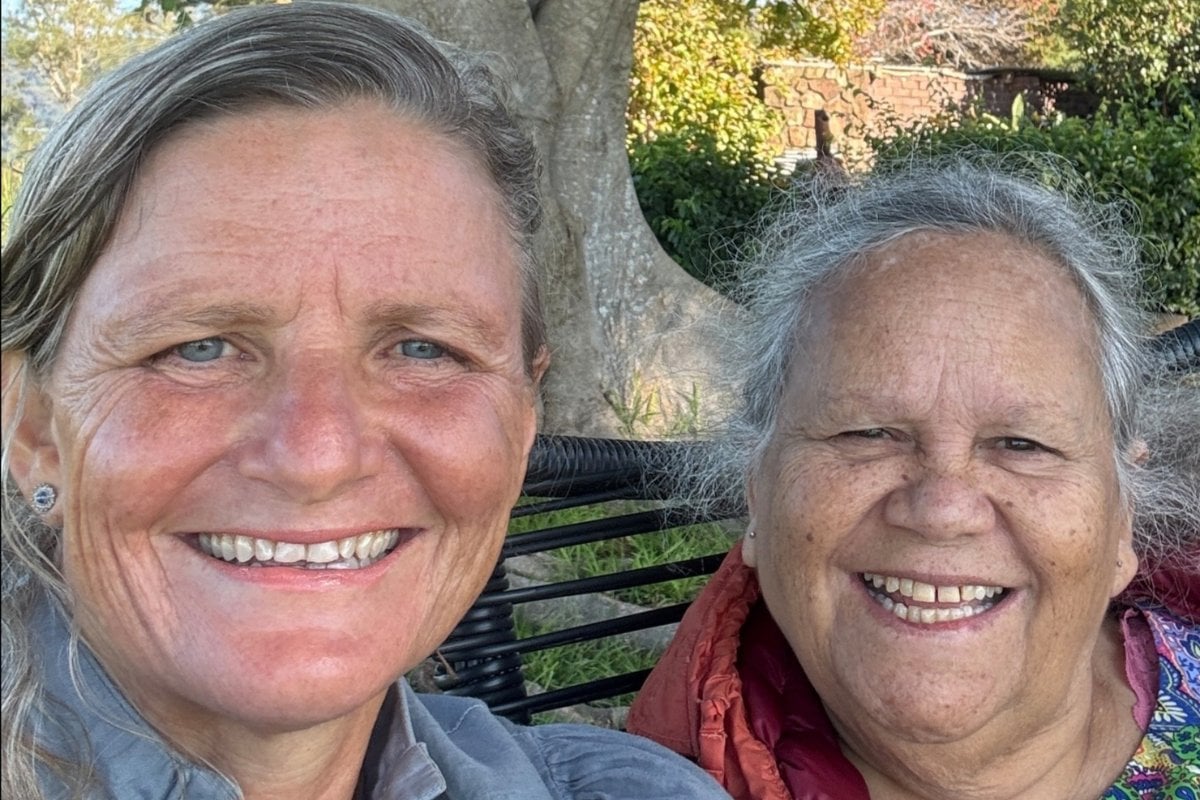
National Reconciliation Week is a time for all Australians to reflect on our shared histories, cultures, and achievements. It's an opportunity to explore how each of us can contribute to reconciliation in Australia.
The theme for National Reconciliation Week 2024 is Now More Than Ever. It's a powerful call to all Australians to tackle the unfinished business of reconciliation.
As part of this journey, non-Indigenous allyship plays a critical role. Allyship is more than passive support; it requires active efforts to support, respect and advocate for the rights and wellbeing of Indigenous people.
Carla Rogers, from Evolve Communities, is non-Indigenous and has dedicated her career and business to allyship, alongside Aboriginal Elder Aunty Munya Andrews. She tells Mamamia that at its heart, allyship is about committing to listen, learn and act in ways that support and empower Indigenous people and communities.
"People worry about being tokenistic," says Carla. "This fear of doing the wrong thing only serves to hold people back. Allyship takes courage, and you will make mistakes, I've made plenty. The important thing is to learn from them and to keep going."
Watch: What Country means to Indigenous people. Post continues below.
"Being an Ally means we help carry the 'cultural load' Indigenous people bear. Imagine the continuous effort to carry, maintain and share cultural knowledge, to speak about the experiences of mob and the impacts of colonisation and racism, to fight for reconciliation, often in the face of ongoing challenges and injustices."
